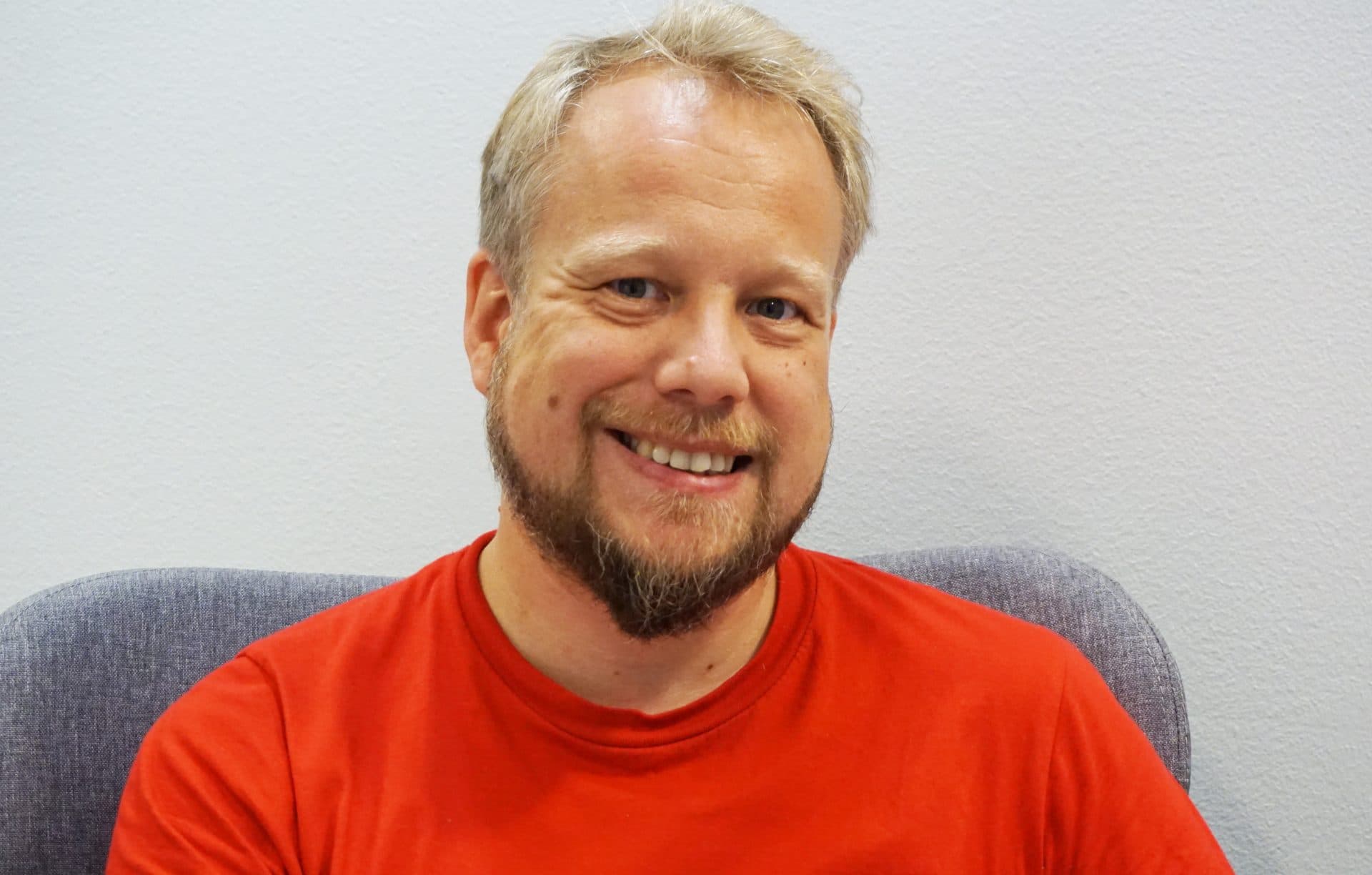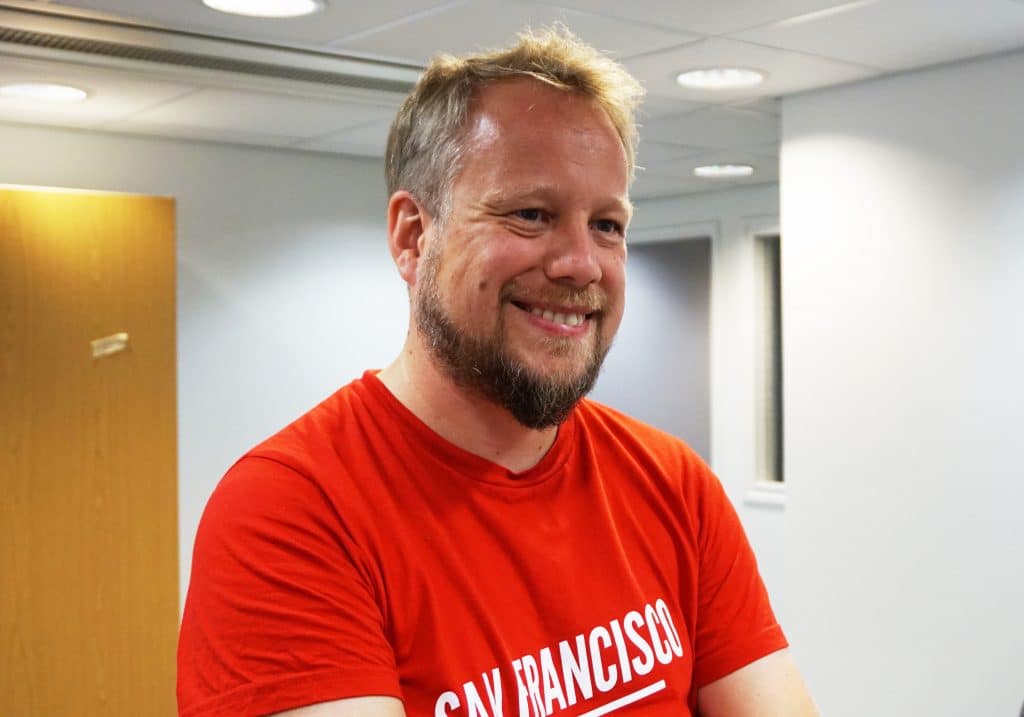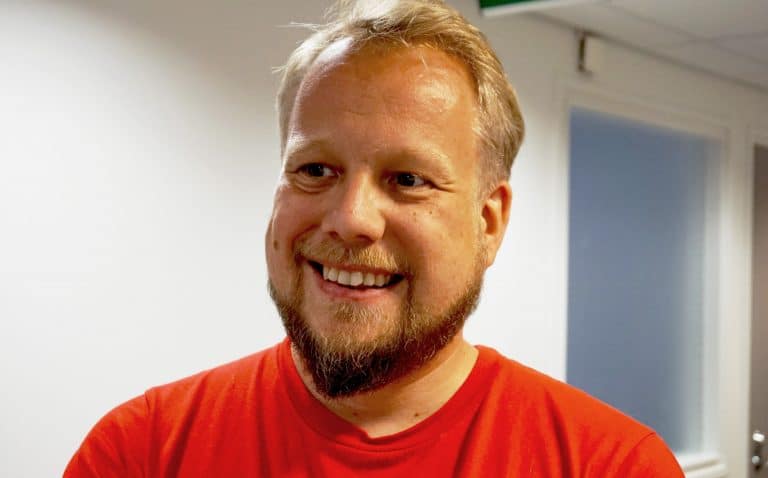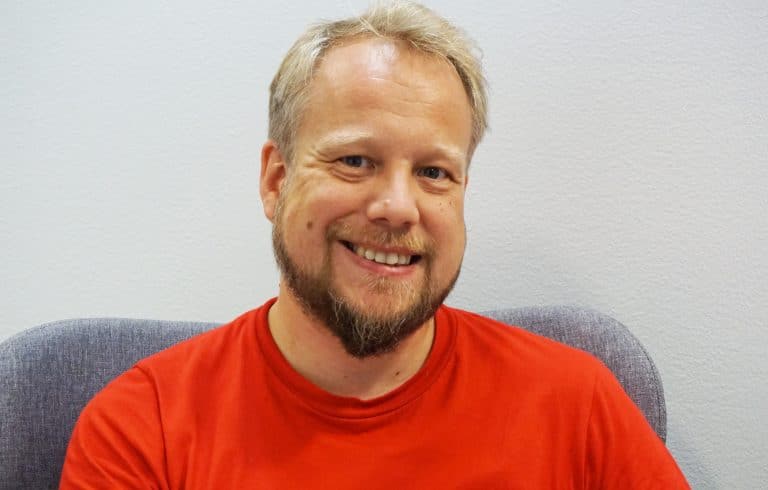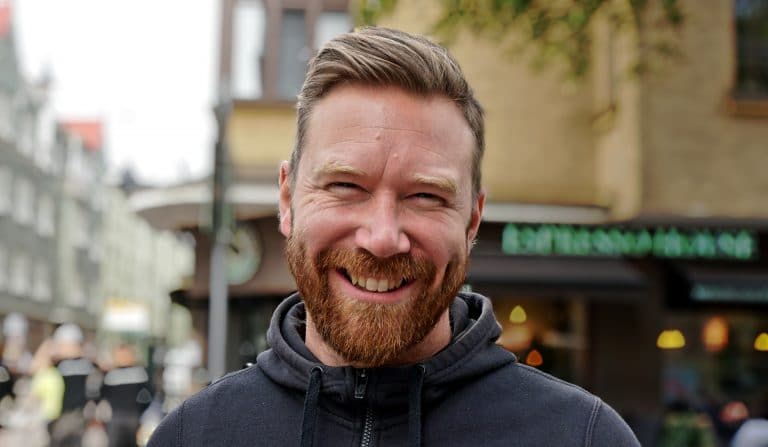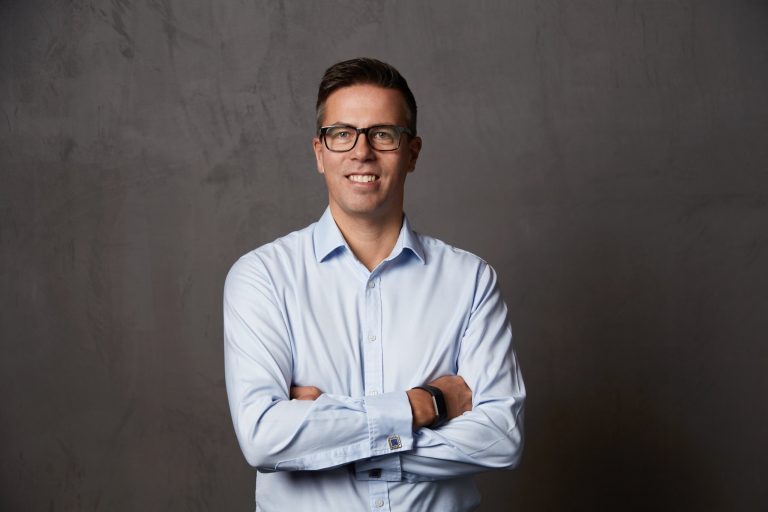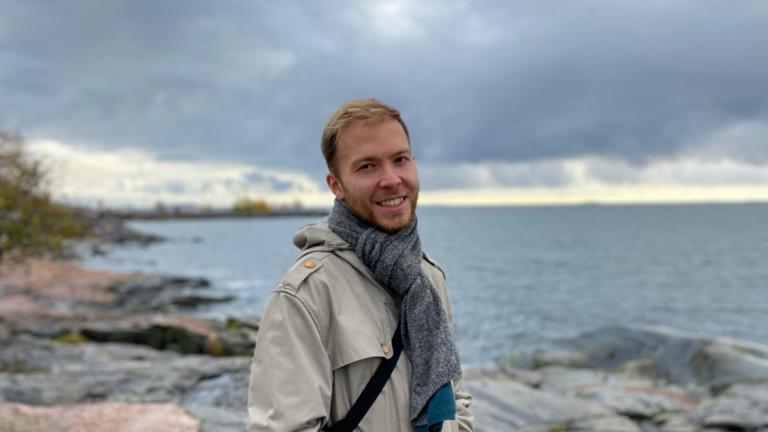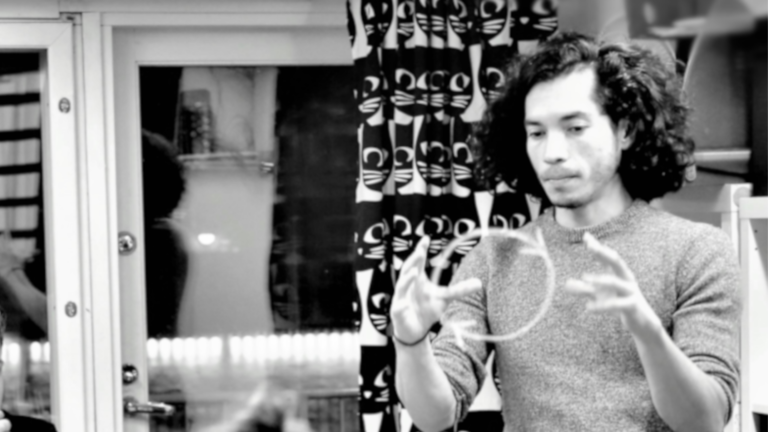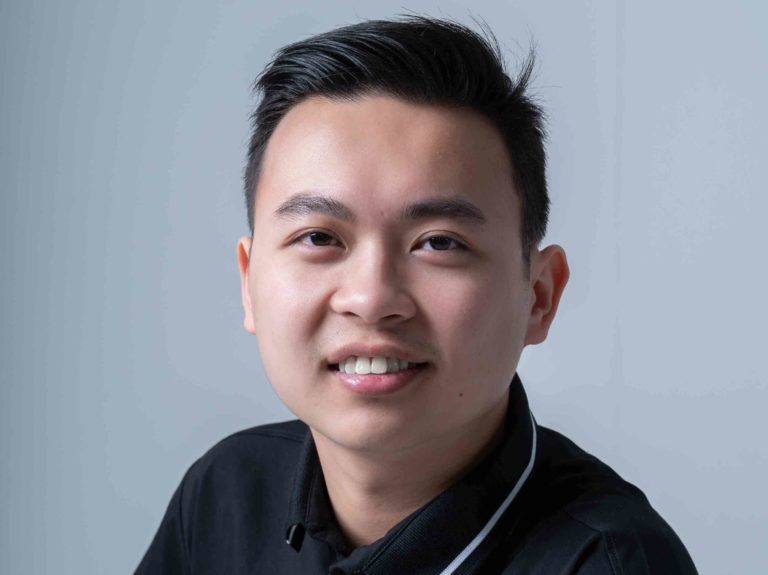I traveled extensively in 2000 and 2001, visiting my friend in Singapore and the states. I went to San Francisco in Spring 2002 only 6 months after the September 11th attacks so there were American flags everywhere. Everybody was a little bit nervous. It affected Americans quite a bit even on the West Coast. But that was very inspiring to get to know California for the first time. Since one of my classmates was having an internship at Finpro (now aka Business Finland), I thought there would be an opportunity for me. So I just made a call to the head of the trade center, asking for lunch to discuss the employment possibility. He told me this could be a good match but not until a year and a half later that I got their confirmation to start my six-month internship. I started from scratch as an “analyst” – it sounds fancy but my main work was to book meetings for our clients. After the internship, I continued to work there for another year.
People see each other as anyone could be the next Steve Jobs or Bill Gates
The best thing from that experience working in Silicon Valley was the chance to be inspired by going to different events and meeting people. Americans most of the time were so open and friendly that I could have a talk with all the billionaires and big shots who were very successful and holding important positions. What I appreciated there was an atmosphere of equality. It’s easy to approach other people or ask for help. I felt like I did have equal opportunities and potentials just like everyone else in the room. People see each other as anyone could be the next Steve Jobs or Bill Gates, no matter how young you are or which ethnicity you’re from.
We did all the possible mistakes in that startup
I was having a proper career with a decent salary but then I felt the need for something new. Together with my friend, we set up a startup in San Francisco and a year later moved to Miami. It turned out to be a huge mistake since Miami was more like a place for party goers and retired people while in Silicon Valley there was truly a business environment to grow a company and a community to be surrounded by the right people who can give you advice and support. Another key learning point is communication. My friend thought I knew what to do and I assumed the same thing to him. Although we stayed in the same apartment, it seemed like we still did not have enough talk especially about strategy, the progress, and why we were doing what we were doing. We also did too much partying and were not proactive to ask for advice and support from fellow entrepreneurs. The apartment was really nice and the next building to Shakira and Shaq O’Neal (whom I greeted at a gas station, although I didn’t recognize him at the time, just complimented his nice car, a Rolls-Royce Phantom). When we went for lunch, we called the valet to bring either the BMW or the convertible Mercedes. At one time when we went out, we spent over 3000 dollars of my co-founder’s money on drinks. The consequence was a six-month delay of the product piloting.We did all the possible mistakes in that startup. In retrospect, it’s always easy to say the timing was great – Y Combinator launched in the same year, and we were one of the first partners for AdMob, a mobile ad network that grew from one guy to an exit worth $750 million four years later. At one time neither me nor my co-founder felt like having the energy to go forward. I did not plan to move back to Finland and start full-time MBA studies at Helsinki School of Economics (now Aalto University) until I was here for one month during summertime. I realized I no longer wanted to stay in Miami so I called my friend to send me my car and all the stuff. Eventually, we closed our company.Now thinking back it seems to me that I was pretty close to “burnout” at that stage. However, no matter how stressful it was, I think the risk is still low for me. Since I was young and having little constraint (no relationship, no family, no kids). So I think people should not wait for too long before trying out entrepreneurship. Because the older and more responsibilities you get, the less comfortable you would be at taking risks while entrepreneurship is mostly about uncertainty and risk-taking.
I became more grateful for the Nordic system
Helsinki was a new city for me so I spent all my energy to get to know people and how things work here. I think everybody should spend time abroad. It really opens your eyes to see your home with an outside view. Two and a half years in the US, I had witnessed the increased number of homeless people, the expensive education, people suffering because of the system and how impossible it seemed to move from a poor family to have some social status. I became more grateful for the Nordic system. The tax is a bit higher but people are being taken care of, so wealthy people can also feel safer. They try to keep inequality at its lowest to prevent crime and wealth gap.The startup scene in Helsinki was almost zero back in 2006. I don’t think people even talked about startups. The concept was unfamiliar to most of them. The common way to run a business was like what my grandmother did – making a big loan from your house without having any external investors or business angels, accelerators or an entrepreneurship ecosystem.
I realized it’s normal to feel insecure
Back then
Aaltoes (Aalto Entrepreneurship Society) had just established. I found its events and programs very helpful. One of the best things that happened in my life is the trip by train through Siberia to China, with the fellow students and entrepreneurs in the community with whom I’ve made life-long friendships. I got a chance to talk with like-minded people sharing about how insecure I was feeling along the way. I thought I was alone in this but I wasn’t. When many others also admitted their feelings of insecure, I realized this was normal, and I could just relax and keep going.

